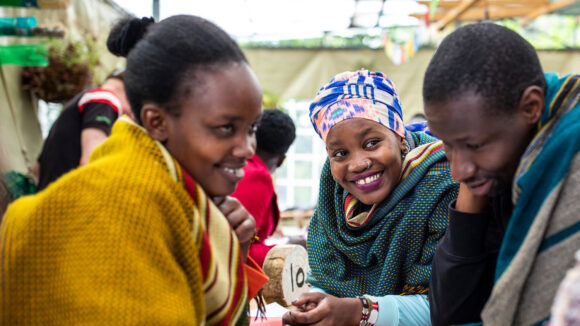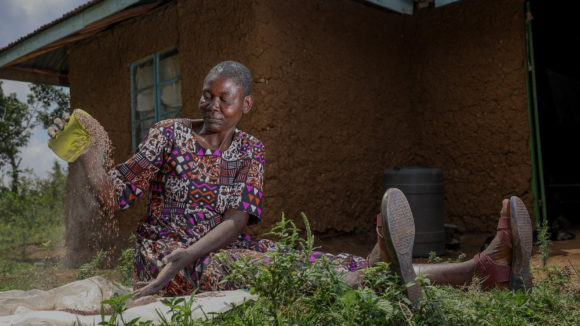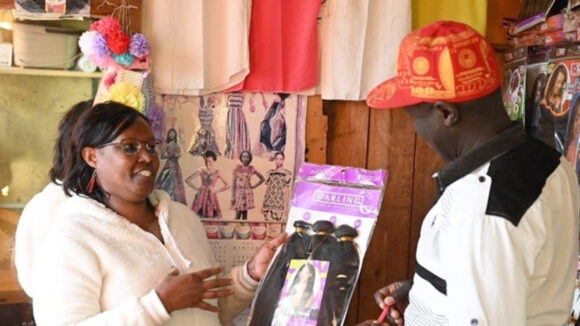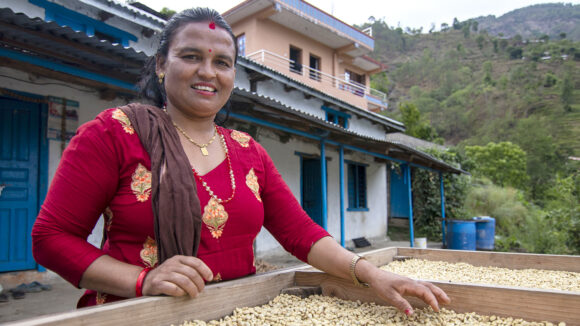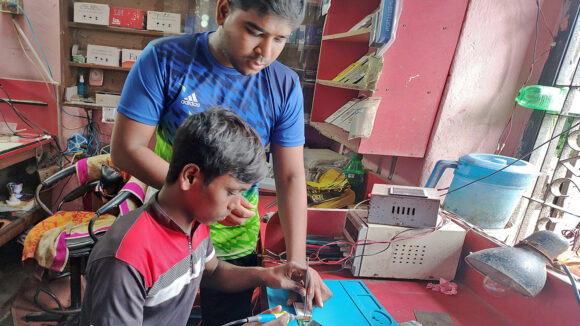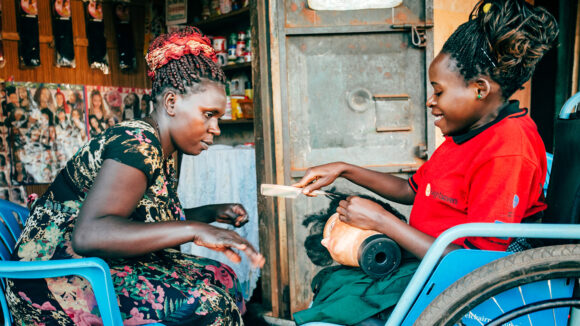Our work on inclusive employment
We’re helping to make practical changes to the way companies train and hire people with disabilities.
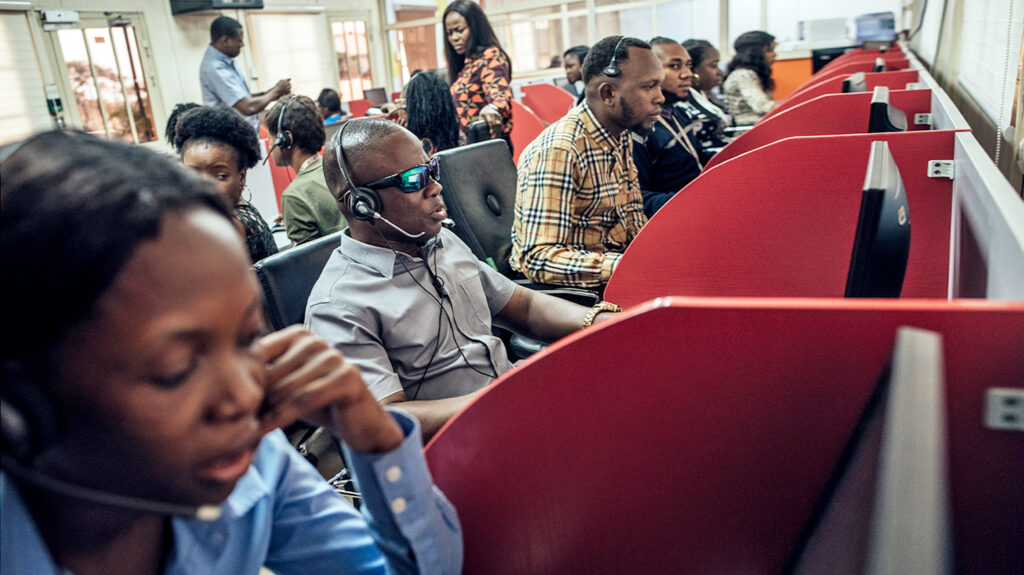
Employment opportunities for people with disabilities are limited by stigma, discrimination and physical barriers.
While most of the 1.3 billion people with disabilities around the world are of working age, only about a third are in employment.
Inclusive Futures has generated solid evidence that labour markets can adapt to provide business opportunities for people with disabilities, as well as formal and informal employment.
We’re scaling up this work to create more employment opportunities for people with disabilities, and driving commitments from business leaders, governments and donors to make this happen.
Our employment projects
Inclusion Works
Country: Bangladesh, Kenya, Nigeria, Uganda
Duration: 2019 – 2022
Donor: UK aid
Partners: ADD International, BBC Media Action, Benetech, Development Initiatives, IDA, IDS, Inclusion International, Sustainable Hospitality Alliance, Sightsavers
This pilot tested innovative ways to create job opportunities for people with disabilities. From 2018 to 2022, we worked with more than 500 businesses, training over 3,700 employees to build their disability confidence, and supported more than 2,300 jobseekers with employment skills training. What we learned
Global Labor Program – Inclusive Futures
Country: Kenya
Duration: October 2021 – October 2026
Donor: USAID
Partners: BBC Media Action, COTU-K, Equal Rights Trust, Innovations for Poverty Action, KEFEADO, LINC, Sightsavers, UDPK, Ulula
This programme aims to increase the inclusion of people with disabilities, particularly women, and improve labour rights in the supply chains at Kenya Breweries Limited and Coca-Cola Beverages Africa. About the programme
Inclusive livelihoods
Country: Kenya
Duration: July 2019 – July 2024
Donor: UK aid
Partners: Humanity & Inclusion, Light for the World, Sense International
This project will help more than 3,000 micro-entrepreneurs with disabilities to grow, develop or sustain their businesses. It is helping to strengthen the overall system by influencing government policy towards a more inclusive business environment and linking entrepreneurs to market and procurement opportunities in the public and private sector, with a particular focus on microentrepreneurs in a refugee context and people who are deafblind. Project snapshot.
Inclusive coffee value chains
Country: Nepal
Duration: December 2019 – March 2023
Donor: UK aid
Partner: Light for the World
We worked with Hamro Coffee to improve opportunities for small-scale coffee farmers with disabilities to supply to local or global markets, ranging from local street markets to formal global value chains. We helped organisations of people with disabilities and coffee value chains to test innovative ways of improving the inclusion of people with disabilities in the country’s coffee sector. Project snapshot
Skills training for young people with disabilities
Country: Bangladesh
Duration: November 2019 – March 2023
Donor: UK aid
Partners: BRAC, ADD International, Light for the World, Sense International
We adapted BRAC’s successful Skills Training for Advancing Resources (STAR) programme, which provides skills training and job placements, to support young people with disabilities and people who are deafblind. We worked in partnership with marginalised populations and linked up with organisations of people with disabilities to broaden the project’s reach. Project snapshot
Project resources:
- Participatory research into learners’ experiences
- Project impact video
Inclusive poverty graduation
Country: Uganda
Duration: June 2019 – March 2022
Donor: UK aid
Partners: BRAC, Humanity & Inclusion
We provided support for BRAC’s Disability Inclusive Graduation programme in northern Uganda, which targeted 2,700 households living in extreme poverty. The programme provided training on enterprise management, financial literacy, and inclusion in village savings and loans associations and social solidarity groups. Working with organisations of people with the disabilities, the programme reached more than 500 people with disabilities who received assistive and prosthetic devices, community advocacy, legal consultation, coaching and mentorship. Project snapshot
Read more about our work
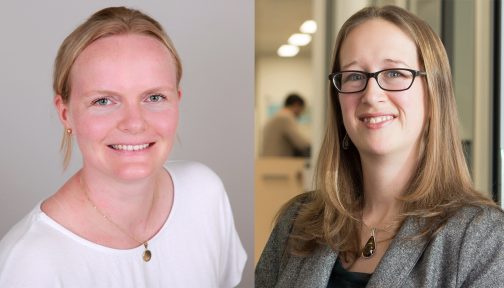
Investing inclusively: how new guidance will help include people with disabilities in economic growth
Susie Rodgers outlines how the new guidance will help investors and companies, and why it's an important step forward in inclusion.
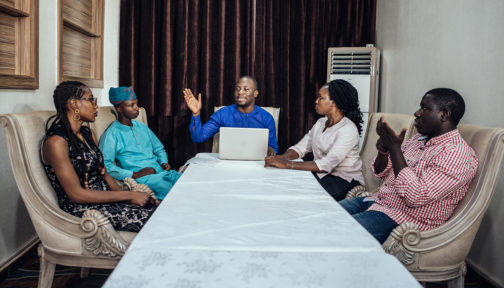
Five cost-free ways to make your workplace disability-inclusive
Inclusion International shares tips from its latest toolkit on supporting people with intellectual disabilities at work. Many of the tips are free and can be implemented without the expense of outside expertise.
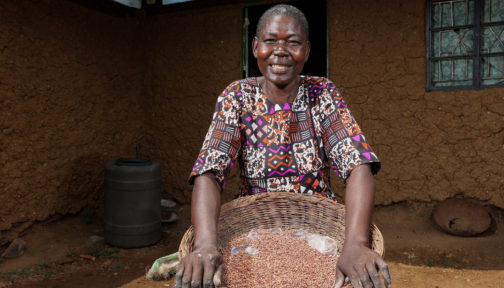
International Day of Rural Women 2022: how we’re helping to transform the lives of women farmers
To celebrate International Rural Women's Day on 15 October, we are highlighting the stories of some of the women farmers we work with in rural western Kenya.

